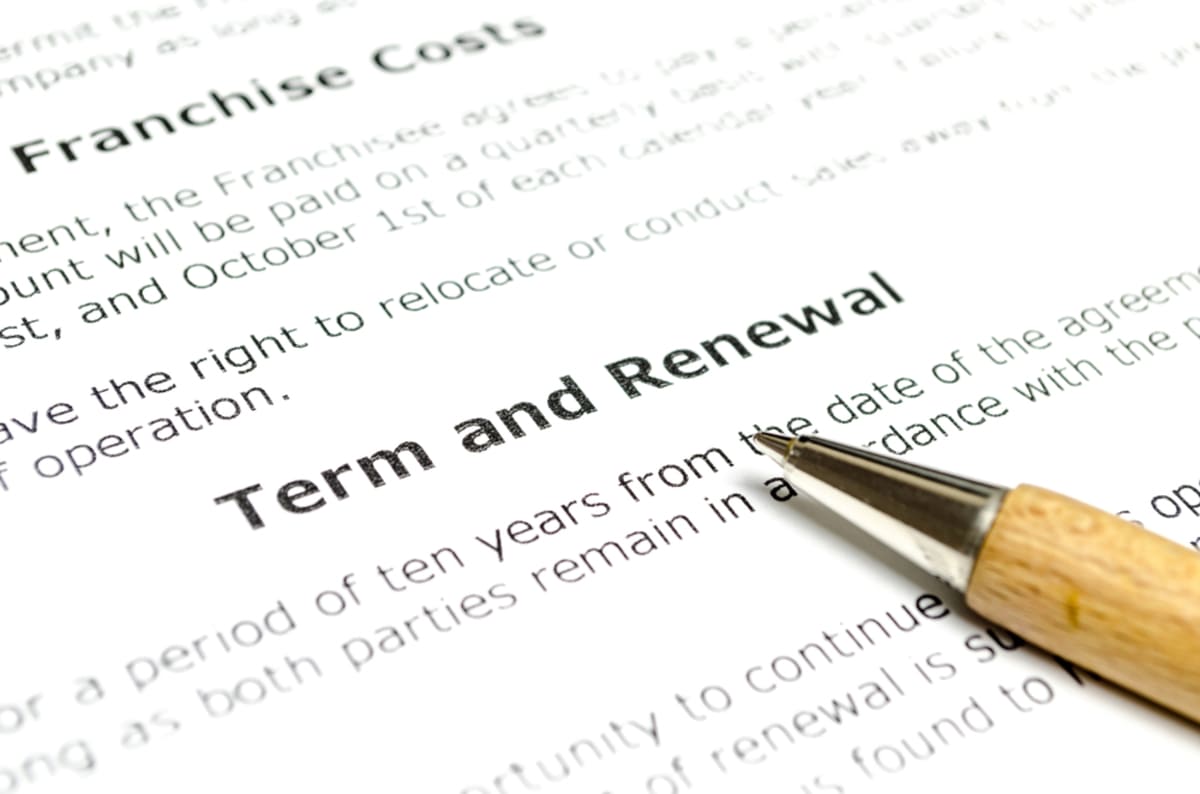Investor Resources
Negotiating a Commercial Lease: Tips for Success

Negotiating a commercial lease can make a substantial difference in achieving success in commercial real estate.
Our team at Kenwood Management Company will guide you through negotiating a commercial property lease price, equipping you with practical strategies to position you for profitability.
If you're ready to learn these valuable insights for success, continue reading.
What's the Importance of Lease Negotiation?
Negotiating a commercial lease is not just about acquiring premises for your enterprise but safeguarding your investment and optimizing its returns. Your lease terms can significantly impact your operation costs, flexibility, and long-term financial health.
Commercial real estate leases are more complex than residential ones. They involve various clauses that need careful review and negotiation—like rent escalation, length of the lease term, options for renewal or early termination, and responsibility for maintenance and repairs, among others.
These contracts often include conditions around subleasing rights or assignment provisions, which can significantly affect plans to grow or pivot your business.
Why Negotiating Your Commercial Lease Matters
You might be curious why we emphasize negotiation. Isn’t it enough to find a suitable location with reasonable rent? That is not entirely accurate.
Each clause in the agreement holds potential savings or risks depending on how well they're negotiated. A small change in the annual rental increase rate could save thousands over time, while favorable exit strategies offer greater operational flexibility when unexpected events occur (like pandemics).
So yes—negotiations do matter.
The Financial Impact of Lease Terms on Investment Goals
Beyond immediate considerations, such as monthly rental fees, lies another crucial aspect—the financial implications of lease terms on your overall investment goals.
An attractive Rent-to-Price ratio, favorable depreciation schedule, and planned property improvements play into achieving maximum ROI from both income perspective and capital appreciation.
So, negotiating a commercial lease is about more than getting the best price. It's also essential to shaping your business’s financial future, protecting your investment from unforeseen circumstances, and ensuring you have room to grow when opportunities arise.
Know Your Audience
You must understand your adversary's strategies and potential responses to negotiate beneficial terms successfully. To do this, first begin by identifying a negotiation's key players.
In any lease negotiation game, multiple players are on the board: landlords, real estate brokers or property managers, and tenants Understanding these individuals' roles can help shape your strategy.
The landlord's goal usually involves securing stable income from a reliable business tenant while minimizing risk exposure. Tenant screening procedures reflect this priority. They may be more inclined towards long-term leases or creditworthy tenants for security reasons.
Real estate brokers or property managers, acting as intermediaries between landlords and tenants, often have extensive market knowledge that influences negotiations significantly. Retail trends, for instance, could impact leasing terms like rent escalations or renewal options.
From the tenant's perspective, the primary goal is to secure a lease that meets the needs of their business while minimizing costs. Therefore, tenants will aim for flexible terms allowing growth and change, such as short-term leases or options to expand the leased space.
Critical Strategies for Successful Lease Negotiation
To maximize your chances of success, anticipate your opponent's moves and employ intelligent strategies tailored to the situation.
By identifying their behavior, understanding their motivations, and using your knowledge and skills, you can position yourself to secure the best possible outcome.
Setting Clear Objectives and Goals
The first step in any negotiation is setting clear objectives. Just as you wouldn't start a road trip without knowing where you're going, don’t start negotiations without clear goals.
Aim for more than just lower rent. Think about other terms that might be important, such as length of lease or flexibility in space usage.
Conducting Market Research to Determine Fair Market Value
You can only tell if you're getting a good bargain if you comprehend what is seen as an equitable cost in your area. Conduct research, use online resources, and contact professionals like Kenwood Management Company to better understand the Washington, DC, real estate market.
This research will give ammunition during negotiations by showing what price similar spaces are being leased for nearby.
Preparing a Strong Negotiation Team
This team should comprise individuals with a deep understanding of the industry, market dynamics, and negotiation strategies. In-house team members can include business strategists and financial analysts, as they can provide valuable insights to help frame the negotiation strategy.
However, the crux of the team should be an experienced commercial real estate lawyer and broker who has a deep understanding of the leasing process, legal implications, and negotiation tactics. Their expertise can help decode complex lease terms and negotiate the best possible deal.
Leveraging Your Leverage: Identifying Negotiation Leverage Points
Identify your leverage points and use them wisely. This could be the landlord's need to lease quickly, your strong credit history, or simply the appeal of a long-term tenant who provides steady income.
The key is understanding what makes you attractive as a tenant and then emphasizing those attributes during negotiations.
When and How Should You Initiate Negotiations
Generally, initiating negotiations well before your desired move-in date, preferably 6 - 12 months prior, is recommended, factoring in the time for discussions, potential property improvements, and legal procedures.
Approaching the negotiation process requires a combination of diplomacy and assertiveness. Start by expressing an appreciation for the property and conveying your interest in a potential long-term partnership. This sets a positive tone while subtly highlighting your value as a stable income source for the landlord.
Navigating Lease Terms and Clauses
Having a good understanding of lease terms and clauses is crucial, much like mastering the rules of a complex board game. Each clause must be thoroughly grasped to play effectively and make informed decisions.
By familiarizing yourself with these terms, you can navigate the lease agreement confidently and ensure a smooth and successful outcome.
Rent and Escalation Clauses
The rent clause in a commercial real estate lease agreement refers to the fixed amount you agree to pay monthly for the property. This amount is typically based on a price per square foot.
If your business occupies a 3,000-square-foot spot in a building with a rent rate of $20 per square foot annually, you'd expect to pay $5,000 monthly.
On the other hand, the escalation clause is closely related to the rent clause and stipulates how your rent may increase over the lease term.
There are various forms of escalation clauses. One common type is a fixed increase, where rent rises by a specified amount or percentage at regular intervals—usually annually.
Another common type is the cost of living increase, where rent is adjusted based on changes in the Consumer Price Index (CPI).
Length of Lease
The length of the lease, also referred to as the lease term, is the duration for which the lease agreement is valid. It's a critical factor in the negotiation process and can range anywhere from a few months to several years, depending on the nature of your business and its growth plans.
A short-term lease can offer more flexibility, especially for start-ups or small businesses that may need to scale up rapidly. However, it may afford less stability and higher rent, given the risk the landlord takes on with turnover.
On the other hand, a long-term lease provides stability and predictable costs, which can benefit budgeting and planning. Yet, it may need more flexibility for a growing or evolving business.
Options and Renewals
Lease renewal and option clauses are essential in securing long-term stability for your business.
A lease renewal option allows you to extend your lease for a certain period at predetermined terms. This option gives you the right, but not the obligation, to renew your lease under specified conditions.
An option to renew at "fair market rent" can be a double-edged sword. While it may protect you from steep rent increases if property values skyrocket, it could also mean higher rent if the market has improved since you signed your original lease.
As a tenant, you should negotiate as much certainty as possible into any renewal term. This could include negotiating a fixed rate for the renewal period or establishing a capped range for any potential rent increase.
Negotiating for multiple or rolling renewal options can also provide further flexibility, allowing your business to remain on the premises for an extended period if it proves beneficial. However, be cautious of any penalties or strict conditions attached to these options.
Maintenance and Repairs
Partnering with Kenwood Management Company can significantly reduce your operational headaches regarding maintenance and repairs.
As an experienced property management firm, we take on the responsibility of property upkeep, ensuring that the leased premises remain in top condition.
Exit Strategies
An exit strategy may involve an early termination clause, a sublease agreement, or an assignment clause.
An early termination clause gives you the right to terminate the lease before the end of the term, usually in exchange for a termination fee.
While it can provide flexibility, it’s essential to negotiate the terms of this clause to make it as favorable as possible. This might involve limiting the termination fee or specifying acceptable reasons for early termination.
Subleasing allows you to lease part or all of your rented space to another tenant. This can be useful if your business needs change and you no longer require the entire rented space.
An assignment clause allows you to transfer the lease to another party. This can be beneficial if you sell your business and the new owners want to continue operating in the exact location.
Mitigating Risks and Ensuring Flexibility
As a savvy investor, you know the negotiation process continues after agreeing on rental rates. It's about safeguarding your investment against potential pitfalls, too.
Negotiating Favorable Sublease and Assignment Terms
The flexibility to sublet or assign your lease can be a game-changer when market conditions shift.
Always negotiate for favorable sublease and assignment terms. This way, if circumstances change (like needing more space), you have alternatives other than breaking the lease.
Addressing Force Majeure and Termination Clauses
Something unexpected may eventually occur. That's where force majeure clauses come into play.
They protect against unforeseen events like natural disasters or pandemics—anything beyond our control.
Force majeure clauses, although not very exciting, are crucial elements of any commercial lease agreement.
You also need termination rights to exit leases prematurely due to specific reasons such as business closure or relocation. Always ask for clear language specifying grounds for early termination while avoiding heavy penalties wherever possible.
Understanding Security Deposits and Guarantees
Security deposits are negotiable and can be reduced if you demonstrate strong financials.
In contrast, a landlord guarantees that rent will get paid even if the business fails. To minimize your risk exposure, aim for limited or conditional guarantees.
Creative Negotiation Techniques
There's more to lease negotiations than meets the eye. It’s not just about hammering out the price per square foot; it's also about finding ways to add value for both parties involved.
Incentive Negotiations: Free Rent, Build-Outs, or Tenant Improvements
One strategy is incentive negotiation. This can take many forms, but let’s focus on three common ones: free rent periods, build-outs, and tenant improvements.
As its name suggests, a free rent period involves agreeing upon a set number of months where the landlord will charge no rent. It could help offset relocation costs or act as an investment in business growth during the early stages.
Next, build-outs involve modifications to the property that cater specifically to your business needs. Before starting with this approach, ensure you understand what changes are allowed under your lease agreement.
Tenant improvements (TIs) refer to structural changes made within leased premises, including renovations like painting walls or installing new flooring types. The cost of TIs is often shared between landlords and tenants depending on their agreed terms.
The Role of Brokers in Creative Negotiations
Hiring a seasoned broker may seem like an added expense at first glance, but these professionals bring expertise and knowledge that can be impactful when negotiating commercial leases.
An experienced broker understands how different factors, such as market trends, impact pricing strategies—they can guide you through tricky situations using tried-and-tested tactics based on years spent navigating similar deals.
A good broker isn’t just there to get you a lower rent. They also know how to negotiate other terms that could benefit your business, such as free rent periods or tenant improvements.
Post-Negotiation Best Practices
Once the negotiation has been completed, following certain post-negotiation best practices is essential to ensure the lease terms are upheld and any potential issues are addressed on time.
These practices help foster a positive landlord-tenant relationship, promote clarity and transparency, and effectively manage the leased property.
Reviewing the Final Lease Agreement with Legal Counsel
The first step post-negotiation is to review the final lease agreement thoroughly. However, don't do it alone. Getting help from legal counsel can save you from potential pitfalls down the line.
Your attorney will look at clauses that need more attention or are potentially harmful. This step ensures that what was agreed upon during negotiations made its way into this critical document correctly.
Implementing Lease Management and Compliance Strategies
You've signed on the dotted line; now what? Implement effective lease management strategies to stay ahead.
This involves tracking all aspects related to compliance—like maintenance schedules or insurance requirements—using tools such as property management software. These systems empower you to handle multiple properties with ease.
Tracking Key Dates and Milestones
Lastly, keep track of critical dates linked with your commercial lease.
Remember when rent escalations are due, renewal periods start, and option exercise deadlines occur—everything needs close monitoring.
Firms like Kenwood Management give investors peace of mind by managing these milestones professionally—freeing up valuable time for you to focus on what's important: growing your investments.
Secure a Profitable Commercial Lease Washington, DC, With Kenwood Property Company
Knowing how to negotiate commercial lease prices can be intimidating, yet with the proper knowledge, preparation, and strategic negotiation, you can secure favorable terms that align with your needs and growth trajectory.
Partnering with Kenwood Management Company, a reputable commercial property management and investment firm, offers invaluable assistance. Our experienced team provides expert guidance, ensuring a smooth and successful journey.
From property management to investment strategies, we help you maximize your returns and achieve your goals.
To begin your learning journey with Kenwood, download our insightful guide, How to Invest in Commercial Real Estate.



